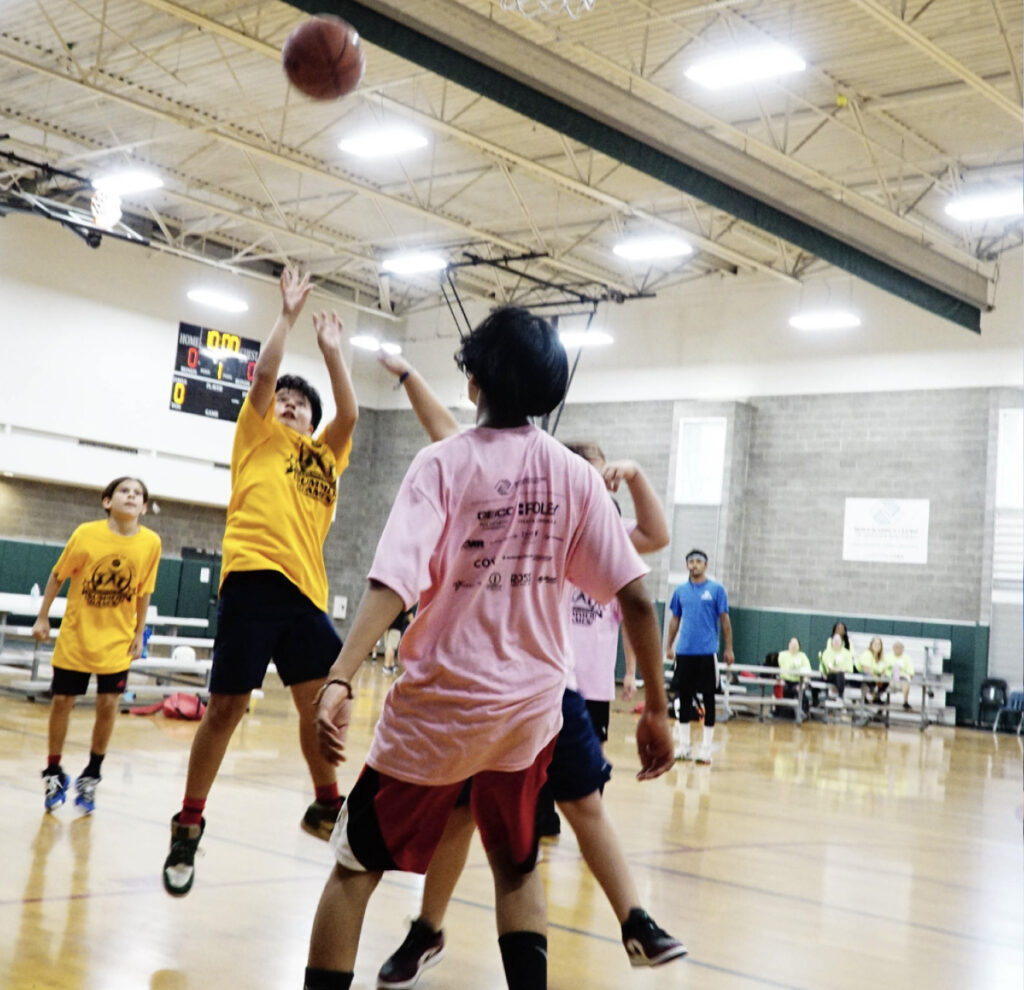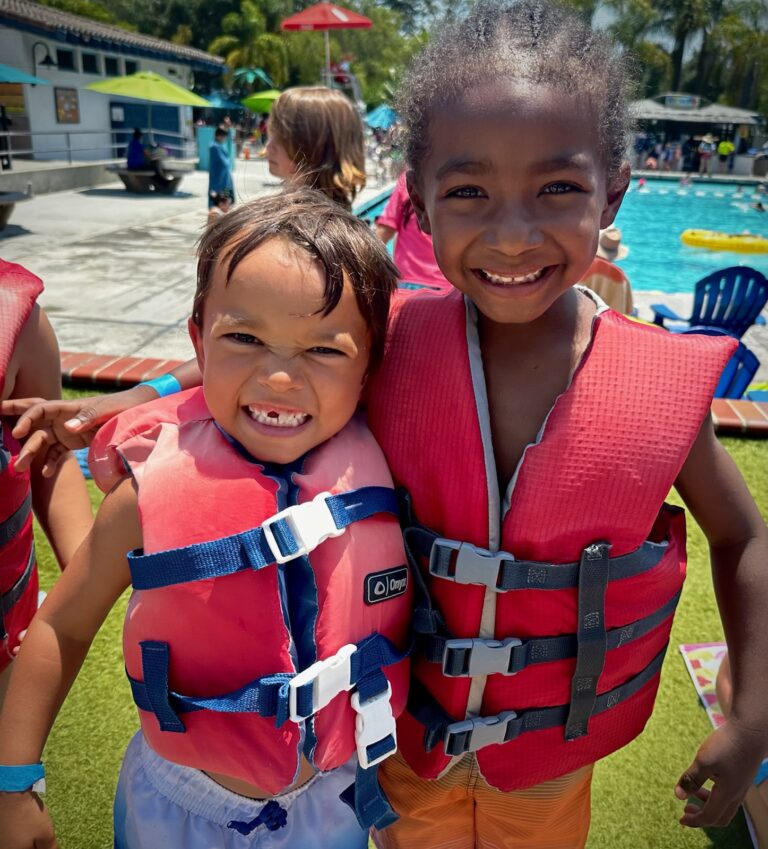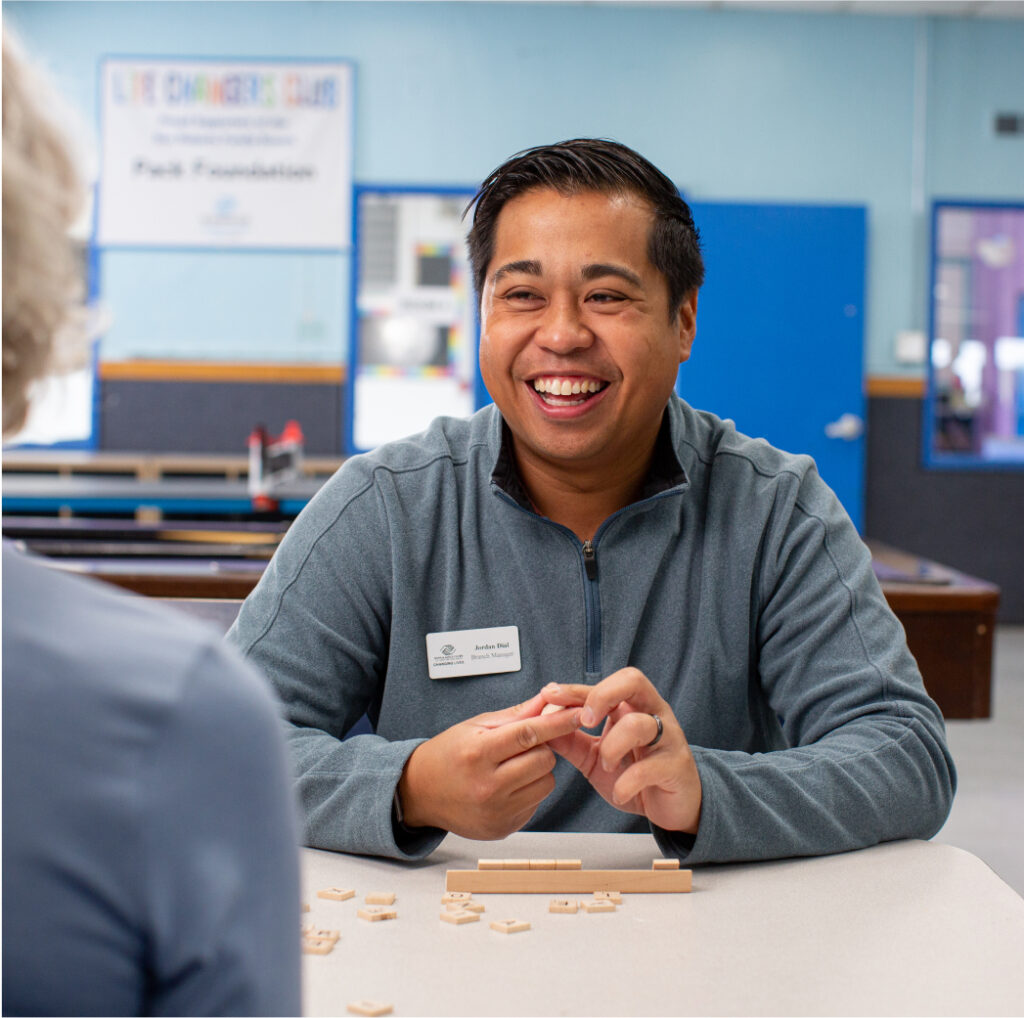When he was little, Charlie Agnew watched his older brothers head to the Boys & Girls Club and couldn’t wait to become a member himself. When that day finally came, Charlie found a safe place, engaging afterschool programs and unique experiences that set him up for success in life after high school graduation.
“They believe in you more than you even believe in yourself,” says Charlie, who now works at an estate management company and still keeps in touch with his Boys & Girls Club. “But they help you find that belief in yourself.”
Behind the blue Boys & Girls Club door, Charlie also found caring staff ready to support his growth and success. He met his mentor, Desiree Frederick, Director of Education and Career Development, who encouraged Charlie to try his best in school and explore options for post-secondary education. “We want to see all kids succeed and graduate from high school,” said Desiree. “We know they’re going to do great things — and then being able to see that happen. It makes working at Boys & Girls Clubs that much more special.”
Academic success is critical to college and career readiness. High school graduation provides the credentials needed for many jobs and is a requirement for many post-secondary education opportunities. With 72% of jobs requiring the kind of knowledge and skills learned from post-secondary programs by 2031, pursuing college, vocational or trade school can be essential for helping young people achieve a productive and fulfilling life.
When young people excel in school, they discover a love of learning, build a strong work ethic and develop crucial life skills that form a foundation for lifetime success. Afterschool programs like Boys & Girls Clubs provide the supportive environment kids need to stay on track in school, explore different career paths, and graduate with a plan for the future.
Helping Kids Succeed in School Now
Many factors contribute to a young person’s academic success on their path to high school graduation: attending school regularly, engaging with learning, building strong study habits, and improving grades and test scores, just to name a few. Afterschool programs at Boys & Girls Clubs can help improve all of these. Most recently, 83% of Club members reported receiving mostly A’s and B’s.
This is especially important as chronic absenteeism continues to be more than double pre-pandemic levels, and children from households experiencing a low income are two to three times more likely to be chronically absent. But not for Club youth: almost 75% of Club teens reported not having skipped school in the past four weeks.
As Charlie says, “Boys & Girls Clubs provide a stable place for kids to go where they are safe, comfortable, and can be who they really want to be.”
At the Club, youth of all ages participate in afterschool programs that not only support what they’re learning in school, but build on it. These include hands-on STEM and arts activities, group projects that teach social-emotional skills, and homework help with trusted adults trained to connect with and empower kids through a youth-centered learning approach.
“I was able to start mentoring him from seventh grade and kept that connection with him through high school and then off to college,” says Charlie’s mentor, Desiree.
Connecting the Career Dots
Many factors contribute to a young person’s academic success on their path to high school Boys & Girls Clubs go beyond helping kids succeed in school today. They also connect what kids are learning to career paths so they can see what’s possible after high school graduation and plan their next steps. Whether that’s college, trade school, vocational school, apprenticeships or the military, Clubs support college and career readiness and guide teens through every part of the process.
Post-secondary education is often a big part of young people’s plans when working toward a chosen career. But the application process can be daunting, especially for first-generation college students or students from low-income households.
That’s where Clubs come in: research shows that when young people have help navigating the in-depth process of applying for admission and financial aid, they are more likely to enroll, attend and complete their post-secondary education. For Charlie, his Club was an invaluable resource to help guide him through that process.
“He was a first-generation college kid,” says Desiree, “This was all new to him and his parents so being able to help him navigate college visits, application processes, scholarships and how we’re going to pay for things, it was really amazing to see him grow through that period of time.”
Charlie was not alone among Club seniors: 86% say they have submitted an application for post-secondary education while three-quarters say they have applied for post-secondary education scholarships.
Becoming Life-Long Learners
While high school graduation and post-secondary education are important, the academic success skills Clubs help kids develop are the true foundation of work and life readiness. Collaboration, leadership, persistence and a strong work ethic are just some of the essential skills employers identify as some of their greatest needs.
Boys & Girls Clubs ignite young people’s curiosity and engagement in learning: nearly all Club youth say they enjoy learning new things and 84% say they choose activities that push them to learn new things.
This kind of engagement serves Club members well even into adulthood, with Charlie’s story as a shining example. “We’re just extremely proud of him and all he’s accomplished,” said Desiree.







